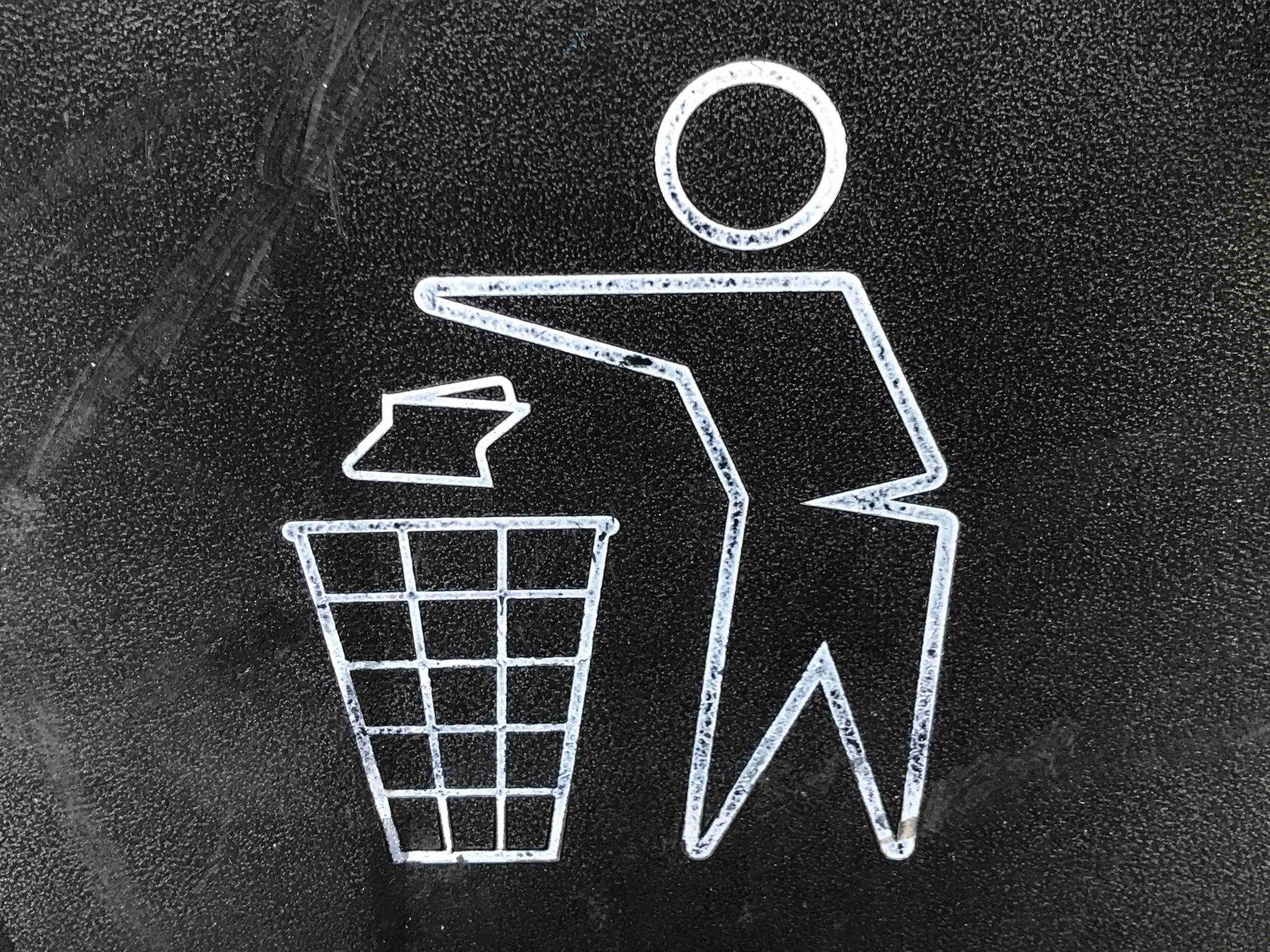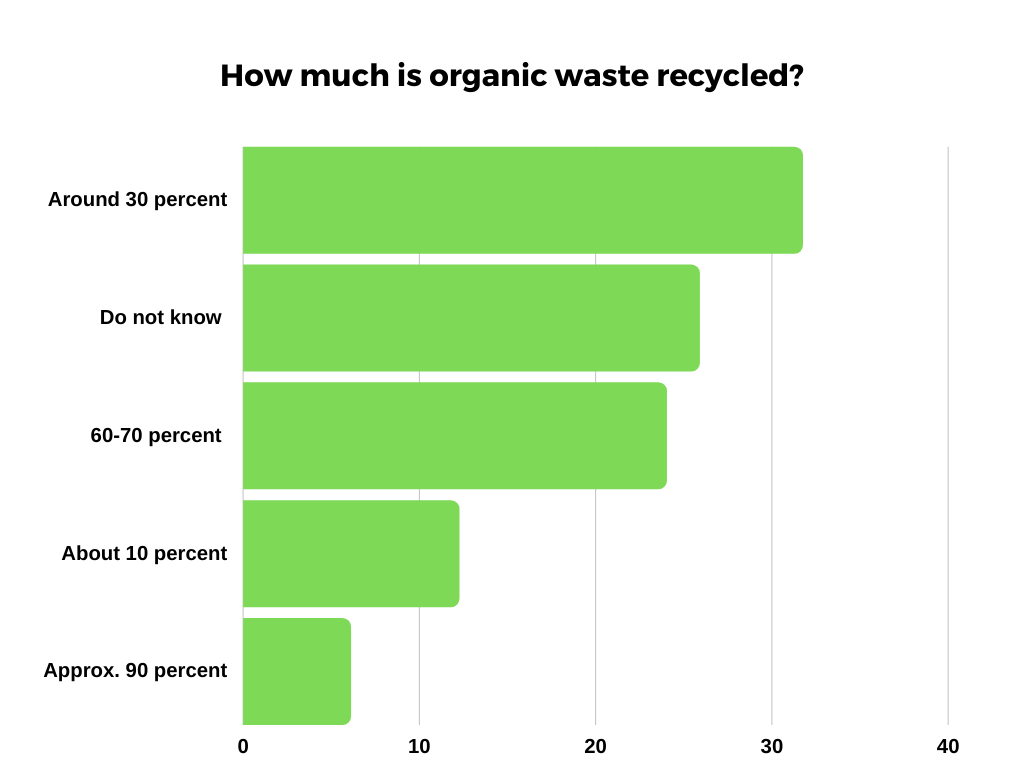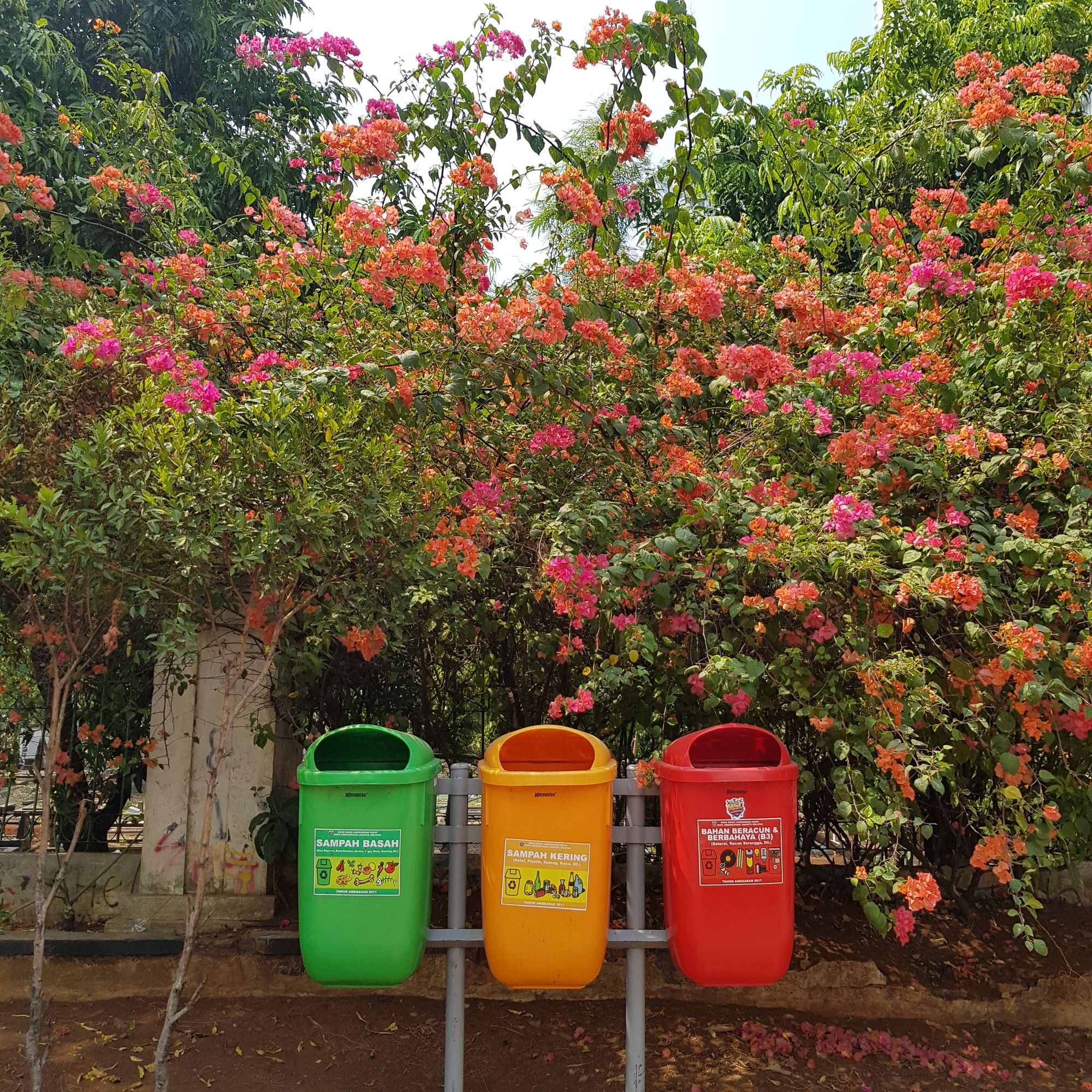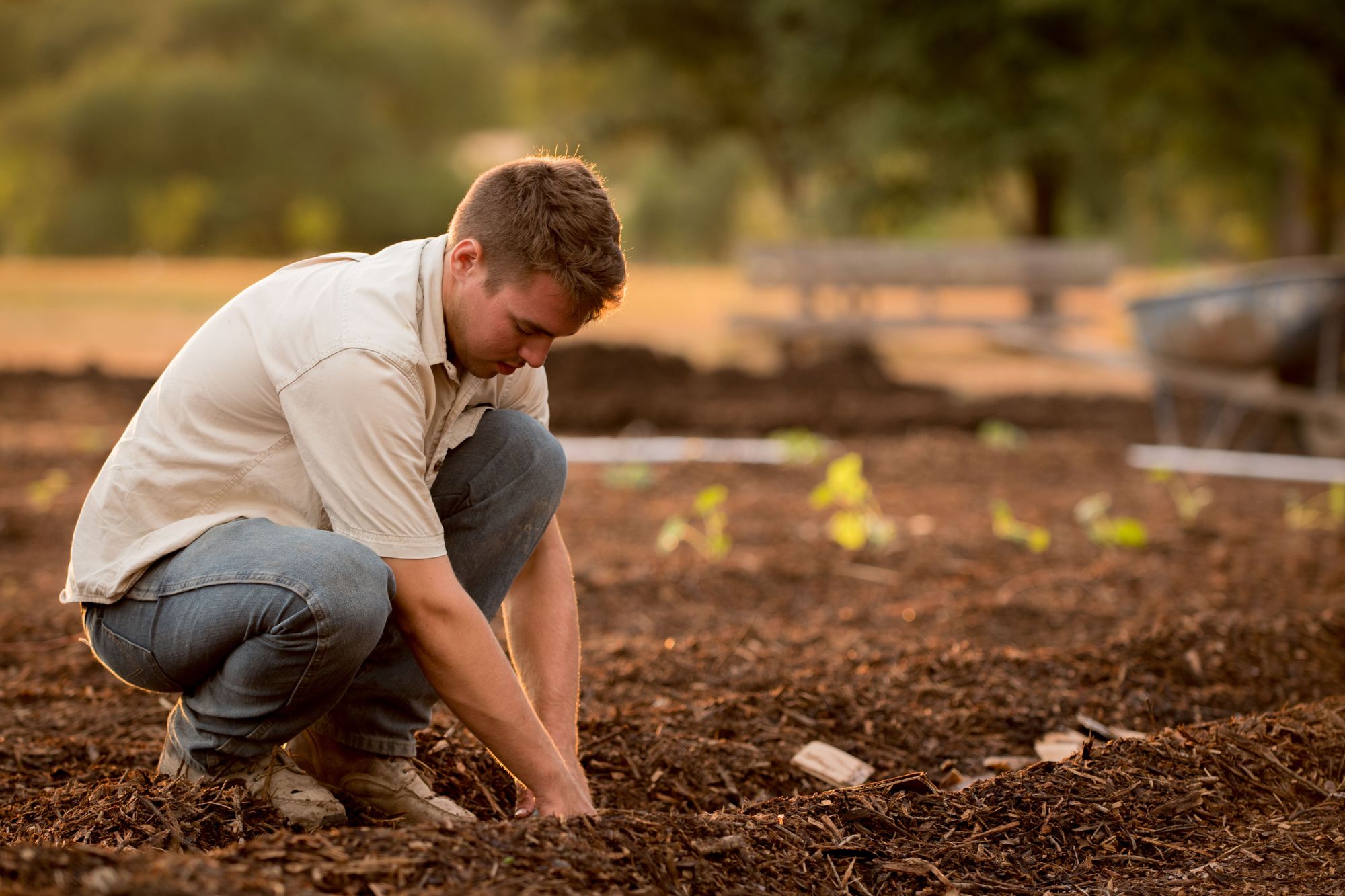
💡 Why waste could be your best investment
There is more to be done when it comes to organic waste. With new methods present there should be no excuses for not using all waste.
Share this story!
SUMMARY
📉 What people think
In a new study Warp conducted, around one out of three seem to think most biodegradable wastes are being recycled.
📈 Here are the facts
Unfortunately, the reality differs quite a bit. In the EU, around 30 percent of organic wastes are reused, while the majority, almost 70 percent, is either disposed of or incinerated.
A pity, one can conclude, considering the multiple methods known to process and transform waste into innovative materials:
Animal food, composting, anaerobic digestion, rendering, rapid thermophilic digestion, and immobilized enzyme reaction make a strong panel of techniques to accelerate degradation and purify wastes.
💡 Optimist's Edge
Once organic wastes are turned into new raw products, it takes a lot of effort to change them into something useable.
Composting, rapid thermophilic digestion, or immobilized enzyme reactions efficiently produce fertilizers for agriculture.
Anaerobic digestion provides the basis to produce biogas that can be used either to fuel cars or houses. And this is already a reality in countries like England or Sweden.
👇 How to get the Optimist’s Edge
The excellent point about organic waste recycling is that everyone can implement a solution adapted to their abilities and reality.
For a small household, simply producing compost in the backyard will already impact. For someone with more resources, choosing to drive a biogas-powered car is a relatively simple alternative that will become more attractive with time. And for a larger company, there is the possibility to tackle the issue of organic wastes with more complex methods, like rapid thermophilic digestion.
But, overall, solutions exist and are even closer to us than we might think.

📉 What people think
Compost has been used for millenniums in agriculture. It is a beautiful source of soil fertilizer. It has also become a common element in households, especially gardens. And rightly so! It has been proven that four-house house composting can remove a car from the streets. The impact is natural and highly logical: why pay for and use energy to collect and treat biodegradable wastes?
Nonetheless, there is yet much more to do than just turning your apple cores and banana skins in the backyard to compost. It would be a mistake to stop searching for the further potential for organic waste. One should not try to satisfy oneself either by thinking that the available significant amount of residential composts means that bio-waste is being entirely reused.
The survey we ran unveils exciting tendencies. A quarter of respondents believe that more than 70 percent of organic waste is recycled, and one out of ten think this proportion even reaches 90 percent.
This means that one of three overestimates what is being done to avoid wasting valuable resources.
However, it is essential to highlight that a similar number has an accurate perception of organic waste handling.

This is one cruel reality. The European Compost Network explains that only 31 percent of organic waste is recycled in the European Union and 17 composted. At the same time, 24 percent is disposed of, and 27 incinerated, which means less than half of organic waste is recycled.
All of the waste could be recycled. But. as demonstrated, we are not even close yet.
The good news is that there is room for progress, and we only need to pass the threshold to achieve it.
First, organic wastes can be recycled through multiple techniques: Animal food and compost, as mentioned earlier, are the most simple. But there are more complex methods such as:
- Anaerobic digestion. In this process, micro-organisms digest organic waste into biogas. It is the most cost-effective, well-known method, and it requires nothing more than isolating the trash from all oxygen;
- Rendering is another technique in which animal tissues, submitted to high temperatures to destroy all pathogens, are converted into powder proteins. This ancient method was used long ago by fishers and hunters but remains appliable for recycling;
- Rapid thermophilic digestion is based on a similar mechanism. By enclosing all waste into a digestor and heating it, the natural fermentation of biomass is accelerated;
- Immobilized enzyme reaction appears as one additional strategy to transform organic waste into usable products. Despite its difficulties and progress needed, adding enzymes (like esterases) to waste allows quicker degradation and conversion.
We know one fact about organic waste: it is entirely biodegradable. And we have also developed techniques to speed up this natural process. But to do what?

💡 Optimist's Edge
Indeed, detaining the ability to recycle quicker is an important step. But once biowaste is turned into a new resource, for what purpose can it be applied?
Of course, the outcome is relatively straightforward for many of the techniques mentioned. Composting produces natural fertilizer. Rendering helps optimize parts that are generally seen as unconsumable. It can stand as a basis to prepare edible products like fat or nonedible like cosmetics.
Waste as a source of energy
This is perhaps the most exciting prospect. The gas derived from a process like anaerobic digestion represents a valuable energy source that can be used, for instance, as fuel. When enclosed in an oxygen-free environment, plants, animal leftovers, or even sewage, all waste decomposes and emits gas (methane and carbon dioxide) when held in an oxygen-free environment.
Raw and compressed, a gas like methane can be used to generate ignitions or explosions sufficient enough to power engines. Road vehicles are already developed to drive on such fuel.
Furthermore, the purification of methane transforms into biomethane. And this market is growing. In the United Kingdom, biomethane powers one million homes and supplies six million by 2030. According to environment consultant CE Delft, biomethane should be divided into two production costs.
As a result, recycling of organic waste will have two positive and parallel impacts:
- One in reducing the exploitation of natural resources and additional greenhouse gas emissions to dispose of these amounts of waste;
- The second impacts energy and resource costs as it takes less effort to extract them. Indeed, wastes are right there in our trashcans.
In the long run, it will help us reduce greenhouse gas emissions as one identical item will then have an extended life span. It will induce a significant energy price decrease for all.
👇 How to get the Optimist's Edge
As we have detailed, methods and goals exist. Now is the time to move forward. And there are several ways in which you can do so.
- Produce your compost! If you have enough space, this is a simple way to tackle the problem of excessive waste. All you need to do is dig a hole in the ground and dispose of your organic waste there. And nature will do the rest. European Compost Network provides information and advice on how to manage your compost.
- However, as mentioned before, composting is cheap, practical, and impactful, but you could buy a biogas car if you strive for a more significant challenge. Brands like Dongfeng SOKON sell models using hybrid biogas and electric systems. If biogas seems an attractive world, European Bio Gas centralizes many interesting resources about upcoming business projects and opportunities for private users.

Suppose you run a business that has to deal with large amounts of organic waste; choosing the rapid thermophilic reaction could be an attractive solution. The company Biomax stands out as one of the leaders in the digestor market.
To achieve a green transition, we have many opportunities in front of us, thanks to organic waste. They range from the most simple ones to more complex and generalized methods. This means that each and every one of us should be able to find an alternative to avoid pure waste.
❓ What else can you do?
Feel free to share more ideas with other Premium Supporters in our Facebook group.
By becoming a premium supporter, you help in the creation and sharing of fact-based optimistic news all over the world.


